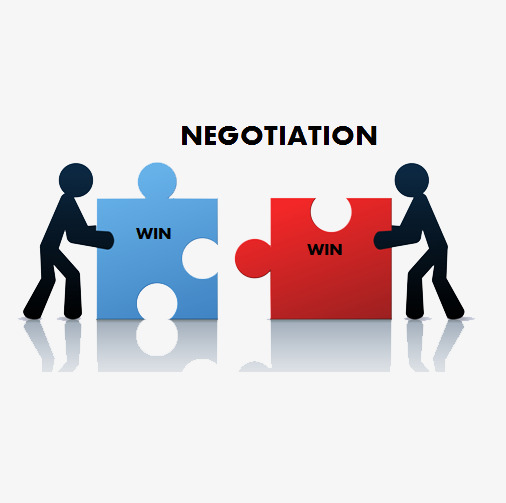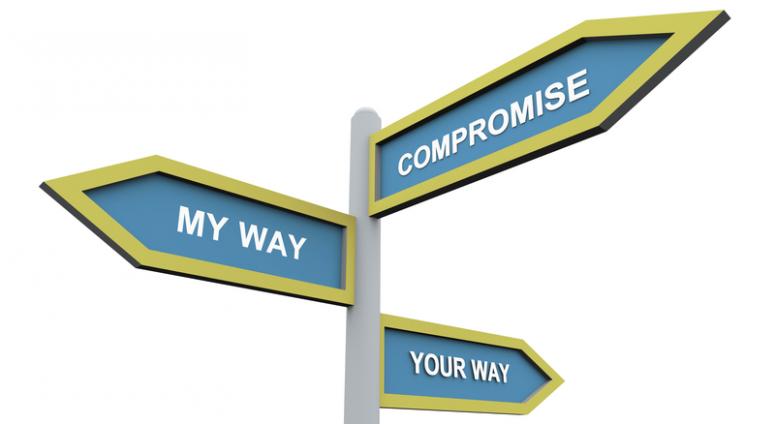
What Is Win-Win Negotiation?
October 20, 2018 Despite our best intentions, we sometimes negotiate too much value away to arrive at an agreement. Even when we go into our talks with high motivations and a grandiose exuberant spirit of cooperation, we have to be wary and dip our toes cautiously into the waters to make sure we aren’t about to be devoured by a grinning and hungry shark. Today, many of us hear that win-win negotiations are all the rage. Academia has in more recent times married win-win to principled negotiation. Yet it is all too common that most negotiators fail to understand that this term represents our achieving a mutually satisfying value maximising win-win negotiated settlement.
Despite our best intentions, we sometimes negotiate too much value away to arrive at an agreement. Even when we go into our talks with high motivations and a grandiose exuberant spirit of cooperation, we have to be wary and dip our toes cautiously into the waters to make sure we aren’t about to be devoured by a grinning and hungry shark. Today, many of us hear that win-win negotiations are all the rage. Academia has in more recent times married win-win to principled negotiation. Yet it is all too common that most negotiators fail to understand that this term represents our achieving a mutually satisfying value maximising win-win negotiated settlement.
Yes, win-win negotiation is less about the process, less about the “how” of getting there, and more about the destination. That said, this article focuses on how best to get you a win-win outcome, whilst keeping your eyes fixed on the elusive win-win negotiation outcome or goal. We are careful to share with you the contexts in which a win-win approach will lose you value in our negotiation training courses.
The Real Win-Win Negotiation Concept
The true meaning of a win-win negotiated settlement is where the agreement reached cannot be improved by any further discussions. So your outcome cannot be improved for your benefit, and similarly, the agreement for the other party cannot be improved further for their benefit either. By definition, there is no or very little value left on the table, and all creative options have been thoroughly explored and exploited.

What does not constitute a win-win negotiation deal?
Many negotiators falsely delude themselves into believing they have a win-win approach and settlement when they adopt many of the strategies described below. However, were they to put their agreement under our microscope and look closer, they would be dismayed to discover that they squandered money and wasted resources. Positional and tactical negotiators love less experienced negotiators who do not yet sufficiently understand ‘win-win’. Why? Inexperienced negotiators make for easy targets to be taken advantage of, simply due to their lack of understanding of the win-win concept. Crafty competitive negotiators employing negotiation tactics all too often strip value from the untrained win-win negotiator.
So what pitfalls can lead your company or team to miss the rich rewards promised by a win-win settlement?
1. One size fits all win-win approach

It’s fine to have a positive mindset going into the talks, but we must be realistic that we do not get bogged down into ‘the end justifies the means‘ mentality by sacrificing resources or funds to get that agreement. The Negotiation Experts does not advocate win-win in all situations. A couple of examples where win-win would be an inappropriate commercial strategy to employ would include:
- Hostile or die hard positional negotiation counterparties who look at you through win-lose lenses.
- When you’re negotiating the purchase of a widely available commodity type product or service that makes neither a strategic impact upon your business, nor carries a large price tag.
- For distributive business negotiations with 1 or 2 negotiation variables. There is no room to manoeuvre, and the party with the more power cards will win (skills being roughly equal).
2. Compromise

Many negotiators falsely believe that compromise is a positive approach to gain a win-win negotiation deal. This is plainly incorrect. If you look at the definition of the word ‘compromise‘, it means ‘A settlement of a dispute in which two or more parties agree to accept something less than they originally wanted.‘ If one or both parties agree to lower their aspirations, this is hardly a win-win outcome, is it? (Note: Over ambition in aspiration due to lack of experience or research is the subject of another article).
3. The Relationship

Possessing the desire to create a durable relationship in a negotiation is admirable, but it does not guarantee that you will walk out of the negotiation with a win-win agreement to hand. Mutual relationships are the ideal, with each side creating value for their organisation and for the other’s organisation. If you find that you’re getting the short end of the stick over and over again, then you’ll need to think through how the other side perceives you, and the negotiation frame that’s been set. Almost everyone agrees that it’s important to have good relations with your business partners, but few will agree with what “good” really means. It’s best you explore this separately as a company and or team, as assumptions are dangerous.
4. Take Our Time

Many negotiators are under the impression that if they take extra time to negotiate they are more likely to achieve a win-win settlement. The truth is that many studies on this very subject have revealed that extra time does not make much difference to the quality of the negotiated agreements.
Winning Strategies
1. Ask Smart Questions
When we enter a negotiation prepared, it is most likely that we’ll only have an educated guess as to other parties’ intentions, interests and priorities. It is a sad truth that in reality, many negotiators do not ask questions to gain a better understanding of the underlying ambitions that lie beneath the other party’s position.
We need to determine whether our goals can be connected to the business goals of the other party. The more we know about their aims, the more we will be able to put together settlement packages that better address the business goals and priorities of both parties. When we know what’s important to the other party, we can build a beneficial and productive agreement that:
- Doesn’t leave gold on the table
- Utilises more resources to the advantage of both parties
- Will save you from stripping away value by making needless concessions
2. Play Fair
What do we tell them about our goals and interests? Reciprocation is essential in negotiations. We have to tell them about our goals and interests so they may better understand how they might not only meet their needs, but ours as well. Best we begin at outset with setting the frame of a cooperative mood to increase mutual interaction. Only then should we progress into fact-finding and option generation. Our counterparts will usually mirror our behaviour, the virtuous and less than virtuous.
If we start by openly offering information, they will normally reciprocate in kind. Our initiating the volunteering of goals and interests does not necessarily put us at a strategic disadvantage. Provided we set the frame of reciprocation and gain agreement at the outset, and provided we don’t put all our cards on the table (better to trade cards, one for one), reciprocation will prevail. Of course if the other side refuses to reciprocate at any point, and refuses to give a valid reason, this should be our red flag to stop.
3. Present Multiple Offers
The best win-win agreements often spring from presenting multiple offers rather than a single, lone offer or proposal. The reason is that a single offer or proposal often has an anchoring effect. Multiple offers tend to stimulate communication. Multiple offers will often prompt or nudge our counterpart into providing vital information about their objectives and the true nature of their business ambitions. Negotiating will be more energetic and productive because several options will likely enhance the possibility of finding even more creative solutions than would otherwise have been possible.
4. Third Party Assistance
Another innovative strategy to maximise your resources effectively is to use a neutral third party to help both parties tease out all goals and interests. In addition, you can ask this third party to suggest an agreement, or for ways in which to improve your existing agreement. Each side should of course have the option to veto the third party’s proposals if they uncover better alternatives. A third party proposal can bring a number of benefits:
- An experienced negotiation expert will often suggest options and proposals that neither party thought of.
- Both parties can safely share more sensitive information. Since information is the building blocks required for creative alternatives, this in itself can open doors that were previously not seen. The resultant outcome is more win-win by leaving little to no gold on the table.
- Trust is fostered under the experienced third independent party’s direction. Often parties don’t share suspicions openly with each other. This format of negotiation is conducive to sharing doubts.
- Mistakes are mitigated against, with a third party looking out for both sides’ interests. This prevents one sided gains and fosters a free thinking creative process, and of course reduces risks.
Conclusion
We need to appreciate that not just any agreement leads to a win-win scenario or outcome in our negotiations. In reality, very few negotiations reach this aspirational and theoretical ideal. Time constraints all too often straight-jacket how long and far we can explore. Attitudes, positions and skills set invisible boundaries that constrain what we see as possible. Win-win deals are more likely when set up correctly through effective use of framing, research and building relationships at the right levels. If a win-win approach is appropriate, it’s essential that we remember to pursue a win-win agreement for both parties.






